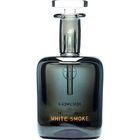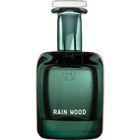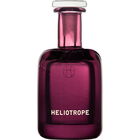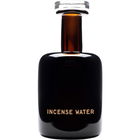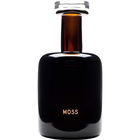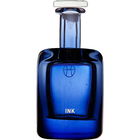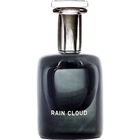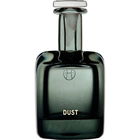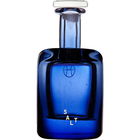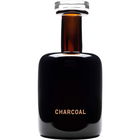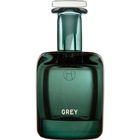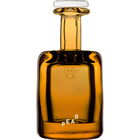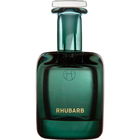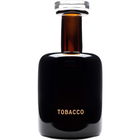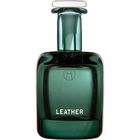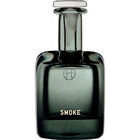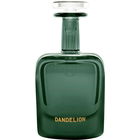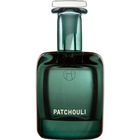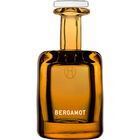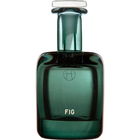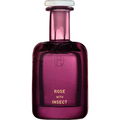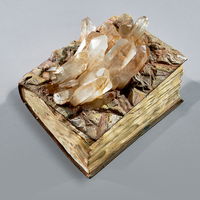
Unterholz
57 Reviews
Translated · Show original

Unterholz
Top Review
The Joyless Devil & Angelica
Assuming a nonsensical shift in reality or whatever, it would lead to the absurd situation where the what-if devil knocked on my door and presented me with the choice of either surrendering my soul to him or keeping it and selecting just one single fragrance from all possible scents to use for the rest of my life - then I would unhesitatingly choose Angelica. And I would laugh in the ugly face of Beelzebub and tell him he could take the whole composition along with the noise and stench of pitch and sulfur to hell, as long as he left me just a single fragrance note: Namely the indeed angelic scent of angelica archangelica L.
Lyn Harris' Angelica is - without wanting to diminish this composition and the perfumer's performance - fundamentally not much more than a deep bow to this fantastic aromatic substance with its unmistakable aroma of lush greenery, stretching shoots, distinguished, earthy, peppery-turpentine, slightly bitter, herbaceous yet simultaneously possessing a bitter sweetness, an ethereal fragile loveliness that is unparalleled - let’s simply call it the breath of captured light.
The essence (oil) of Angelica is primarily obtained from the dried taproot, a medicinal plant known to humans since antiquity, which has been said to be used against loss of appetite, stomach ailments, and even for abortions. The bitter substances contained in the root are weakly toxic (presumably in larger quantities) and are also popular ingredients for digestifs, herbal liqueurs, or even gin or absinthe. Clearly, the plant has been attributed various esoteric and magical powers, which shall not be discussed here.
Angelica is a very slender, puritanical perfume - actually not even a perfume, rather just a sculptural scent and air formation, the manifestation of a passing cloud landscape, a quote from nature itself, not even a poem, but just a phrase, a fragment of melody that the wind carries, like someone taking a walk on a windy autumn day and catching a few chords of piano music from a house, which the wind immediately sweeps away again. Not without leaving me with a faint, indeterminate longing - yes, this Angelica has nothing cheerful about it, it is pure melancholy.
I am - as you have surely noticed - thrilled by this scent and I could smell it for hours. The radiant, solar Angelica receives quiet support from a hint of citrus (but really just a hint, grapefruit, possibly hedione?), from cologne-like floral notes (neroli and/or jasmine, a bit of herbaceous lavender seems plausible too) and subtle meadow herbs in a juicy green habitus. I assume a generous use of moderate green chemicals like minty stemone and hexenyl or hexenol (grassy-floral notes with citrus undertones). I do not consciously perceive cedar or woody notes, but I am probably a bit “blind” there, as cedar (especially the slightly “sweaty” Texas cedar) is one of my favorite fragrance materials, so I often do not really smell it prominently anymore.
It is commendable that the perfumer does not succumb to the temptation to stage Angelica thickly or even to paint the ethereal freshness with vanilla or amber complexes in a shrill manner on a pompous (and unnecessary) pedestal. Angelica is not comparable to Guerlain's (also fantastic) “Angélique noire,” which I also count among my absolute favorites, but which has more of a perfume quality in the true sense of a composition. Frédéric Malle's “Angeliques sous la pluie” is closer to it or also the “French Lover” from the same house. Harris' watery collage is even more intimate, more subdued, and private than what Jean-Claude Ellena would have done, for example.
The projection of this fragrance, which seems to be predominantly created from natural and nature-like building blocks, is very moderate. It is, like many perfumes from the British trained in Grasse, a very intimate, reserved scent that does not seek to please others but wants to merge only with its wearer. Sounds almost like some overly used marketing jargon? In fact, I am usually allergic to such phrases of scent homeopathy, but with many of Lyn Harris' creations, this simply holds true. On her website (Perfumerh.com), one gets a glimpse into this almost private home-office-laboratory atmosphere that supports her working method and this interpretation.
Whoever thinks the price for such a reserved perfume is a bit high might take it a step further and buy a few mL of pure essential angelica oil from a good raw material dealer (Caution, another bit of advertising: Edenbotanicals.com) and enjoy this puristic heavenly odor without any pretensions.
But the devil will have nothing to laugh about.
Lyn Harris' Angelica is - without wanting to diminish this composition and the perfumer's performance - fundamentally not much more than a deep bow to this fantastic aromatic substance with its unmistakable aroma of lush greenery, stretching shoots, distinguished, earthy, peppery-turpentine, slightly bitter, herbaceous yet simultaneously possessing a bitter sweetness, an ethereal fragile loveliness that is unparalleled - let’s simply call it the breath of captured light.
The essence (oil) of Angelica is primarily obtained from the dried taproot, a medicinal plant known to humans since antiquity, which has been said to be used against loss of appetite, stomach ailments, and even for abortions. The bitter substances contained in the root are weakly toxic (presumably in larger quantities) and are also popular ingredients for digestifs, herbal liqueurs, or even gin or absinthe. Clearly, the plant has been attributed various esoteric and magical powers, which shall not be discussed here.
Angelica is a very slender, puritanical perfume - actually not even a perfume, rather just a sculptural scent and air formation, the manifestation of a passing cloud landscape, a quote from nature itself, not even a poem, but just a phrase, a fragment of melody that the wind carries, like someone taking a walk on a windy autumn day and catching a few chords of piano music from a house, which the wind immediately sweeps away again. Not without leaving me with a faint, indeterminate longing - yes, this Angelica has nothing cheerful about it, it is pure melancholy.
I am - as you have surely noticed - thrilled by this scent and I could smell it for hours. The radiant, solar Angelica receives quiet support from a hint of citrus (but really just a hint, grapefruit, possibly hedione?), from cologne-like floral notes (neroli and/or jasmine, a bit of herbaceous lavender seems plausible too) and subtle meadow herbs in a juicy green habitus. I assume a generous use of moderate green chemicals like minty stemone and hexenyl or hexenol (grassy-floral notes with citrus undertones). I do not consciously perceive cedar or woody notes, but I am probably a bit “blind” there, as cedar (especially the slightly “sweaty” Texas cedar) is one of my favorite fragrance materials, so I often do not really smell it prominently anymore.
It is commendable that the perfumer does not succumb to the temptation to stage Angelica thickly or even to paint the ethereal freshness with vanilla or amber complexes in a shrill manner on a pompous (and unnecessary) pedestal. Angelica is not comparable to Guerlain's (also fantastic) “Angélique noire,” which I also count among my absolute favorites, but which has more of a perfume quality in the true sense of a composition. Frédéric Malle's “Angeliques sous la pluie” is closer to it or also the “French Lover” from the same house. Harris' watery collage is even more intimate, more subdued, and private than what Jean-Claude Ellena would have done, for example.
The projection of this fragrance, which seems to be predominantly created from natural and nature-like building blocks, is very moderate. It is, like many perfumes from the British trained in Grasse, a very intimate, reserved scent that does not seek to please others but wants to merge only with its wearer. Sounds almost like some overly used marketing jargon? In fact, I am usually allergic to such phrases of scent homeopathy, but with many of Lyn Harris' creations, this simply holds true. On her website (Perfumerh.com), one gets a glimpse into this almost private home-office-laboratory atmosphere that supports her working method and this interpretation.
Whoever thinks the price for such a reserved perfume is a bit high might take it a step further and buy a few mL of pure essential angelica oil from a good raw material dealer (Caution, another bit of advertising: Edenbotanicals.com) and enjoy this puristic heavenly odor without any pretensions.
But the devil will have nothing to laugh about.
17 Comments





 Green notes
Green notes Grapefruit
Grapefruit Angelica root
Angelica root Ambrette seed
Ambrette seed Bitter orange
Bitter orange Black pepper
Black pepper French lavender
French lavender Persian elemi
Persian elemi Rosemary
Rosemary Texas cedar
Texas cedar Enaccord
Enaccord Floyd
Floyd ElAttarine
ElAttarine Licorice
Licorice Eggi37
Eggi37 Gandix
Gandix Bastian
Bastian DasCroe
DasCroe Susan
Susan Heikeso
Heikeso